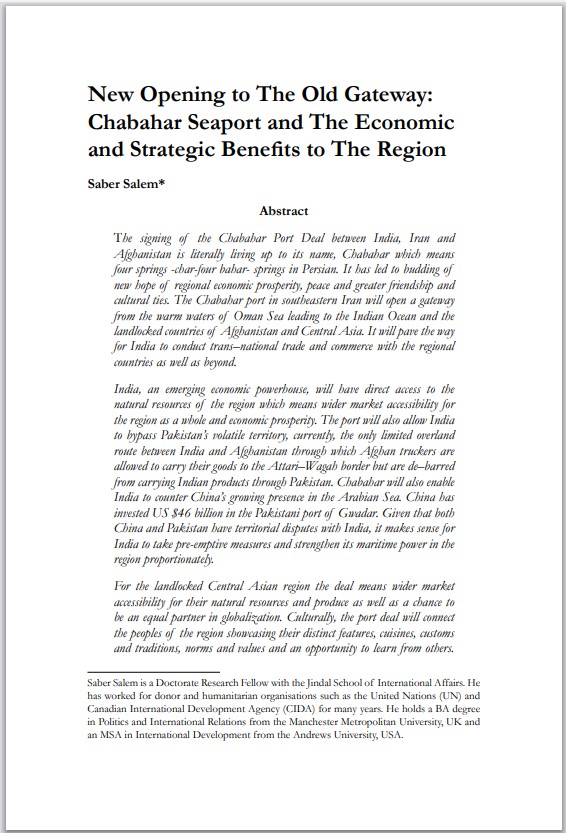New Opening to The Old Gateway :
Chabahar Seaport and The Economic and Strategic Benefits to The Region
DOI:
https://doi.org/10.54945/jjia.v4i1.95Abstract
The signing of the Chabahar Port Deal between India, Iran, and Afghanistan is literally living up to its name, Chabahar which means four springs -char-four bahar- springs in Persian. It has led to the budding of new hope of regional economic prosperity, peace, and greater friendship and cultural ties. The Chabahar port in southeastern Iran will open a gateway from the warm waters of the Oman Sea leading to the Indian Ocean and the landlocked countries of Afghanistan and Central Asia. It will pave the way for India to conduct transnational trade and commerce with the regional countries as well as beyond. India, an emerging economic powerhouse, will have direct access to the natural resources of the region which means wider market accessibility for the region as a whole and economic prosperity. The port will also allow India to bypass Pakistan’s volatile territory, currently, the only limited overland route between India and Afghanistan through which Afghan truckers are allowed to carry their goods to the Attari–Wagah border but are de–barred from carrying Indian products through Pakistan. Chabahar will also enable India to counter China’s growing presence in the Arabian Sea. China has invested US $46 billion in the Pakistani port of Gwadar. Given that both China and Pakistan have territorial disputes with India, it makes sense for India to take pre-emptive measures and strengthen its maritime power in the region proportionately.
For the landlocked Central Asian region, the deal means wider market accessibility for their natural resources and produce as well as a chance to be an equal partner in globalization. Culturally, the port deal will connect the peoples of the region showcasing their distinct features, cuisines, customs and traditions, norms and values and an opportunity to learn from others. It also means a better shot at regional security with greater understanding and agreements. This appears on the surface to be a win-win situation but will it all be plain sailing? Herein comes the significance of regional geo-politics that has the potential to rock the boat if not to scupper the deal altogether. Intricate diplomatic choreographing is needed if this deal and the hopes of the region are to bear fruit.







